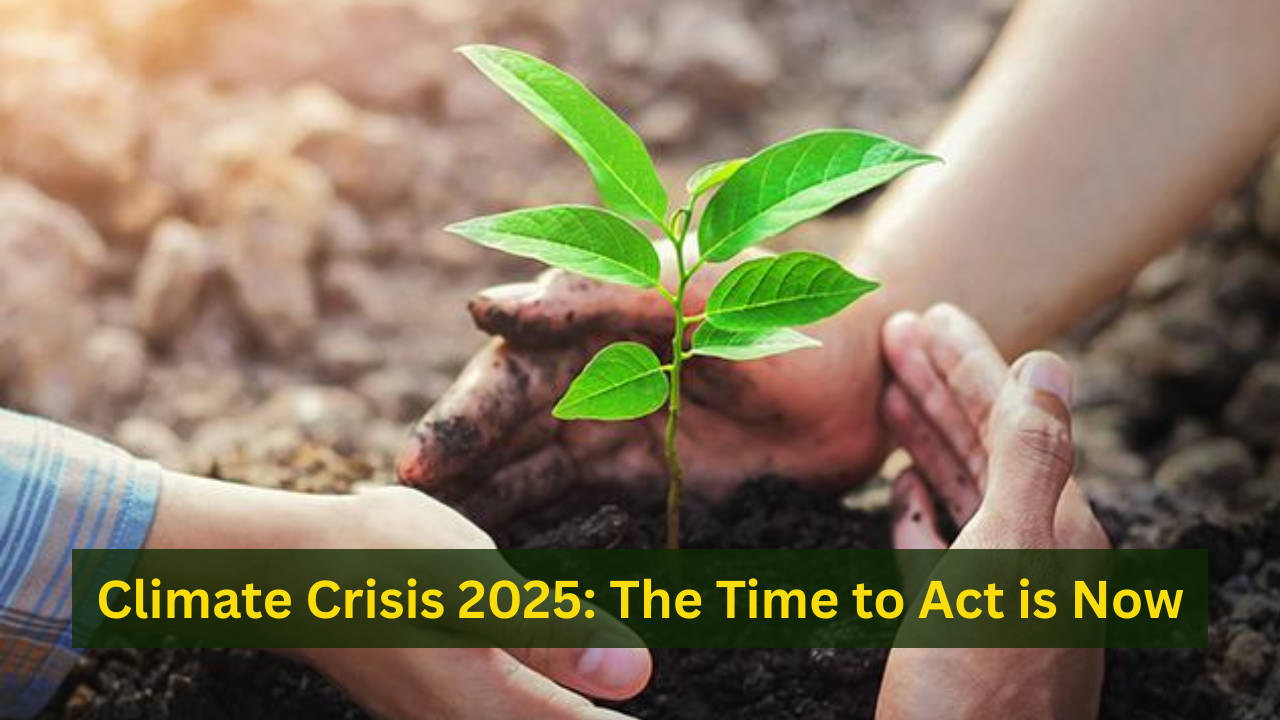Climate Change in September 2025: A Global Crisis in Focus

In September 2025, climate change continues to reshape lives worldwide through unprecedented extreme weather. From catastrophic floods in Central Europe to record-breaking heatwaves in Japan and raging wildfires in Los Angeles, the planet faces escalating challenges. This article highlights the impacts, costs, and urgent actions needed to address this global crisis.
Extreme Weather: A Global Snapshot
Record-Breaking Events
2024 was the hottest year on record, and 2025 is continuing that trend. According to the World Meteorological Organization (WMO), there were 151 extreme weather events in 2024, including:
-
Floods in northern Pakistan and Central Europe, displacing millions.
-
Heatwaves in Japan (41.8°C) and Mali (48.5°C), sparking health emergencies.
-
Wildfires across the U.S. and Europe, destroying 208,000 hectares of forest.
-
Hurricanes Helene and Milton in the U.S., costing billions in damages.
Economic Toll
The European Environment Agency (EEA) estimates that losses exceeded $320 billion in 2024, with 50–90% of damages uninsured in Europe alone.
Why It’s Happening
-
A Warming Planet: Global temperatures rose 1.55°C above pre-industrial levels in 2024, fueled primarily by fossil fuel emissions.
-
Scientific Evidence: NASA reports that extreme weather intensity has doubled since 2003. Warmer oceans fuel stronger hurricanes, while a moisture-rich atmosphere magnifies floods.
-
Cryosphere Collapse: Arctic sea ice hit its second-lowest extent in July 2025, threatening ecosystems and freshwater supplies for millions.
Human and Economic Costs
-
Health Risks: Tens of thousands died from extreme heat globally, including 21,000 heat-related deaths in the U.S. since 1999.
-
Food Security: Droughts in Brazil and floods in Pakistan disrupted food supply chains. In South Korea, cabbage prices surged 70% in September 2025, highlighting the ripple effect.
-
Funding Gap: Developing nations require $187–359 billion annually for adaptation by 2030, but current financing falls dangerously short.
Global Actions and Innovations
-
Policy Push: The EU is targeting a 90% emissions reduction by 2040. The UN’s new Call to Action on Extreme Heat, backed by $11.5 million, aims to strengthen resilience.
-
Technology & Solutions: AI-driven weather models now improve forecasts in Bangladesh and the Philippines. Nature-based approaches, like coastal mangrove restoration, are helping communities adapt.
-
Challenges: Budget cuts at the U.S. NOAA in 2025 weaken climate monitoring, putting lives at risk.
Conclusion
Climate change is not a distant threat—it’s a global emergency unfolding now. Extreme weather is costing billions, disrupting economies, and claiming countless lives. Public awareness is rising—65% of Americans now link extreme weather to climate change (Yale, 2025)—but economic concerns still temper political will.
Urgent action is critical. Nations must strengthen Paris Agreement commitments at COP30, accelerate renewable energy adoption, and expand funding for early warning systems. At the same time, individuals can make a difference by supporting clean energy, reducing carbon footprints, and advocating for climate-resilient infrastructure.
As UN Secretary-General António Guterres reminds us:
“The benefits of acting now outweigh the costs.”
The time to act is now.



 210
210

 The BharatBiz
The BharatBiz
 16
16

